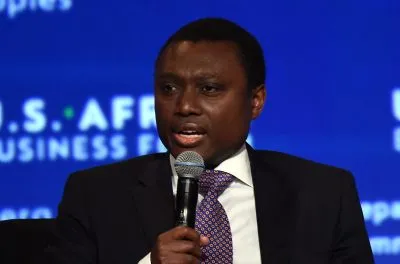Tobi Onaoluwa, a PhD student at Nigeria’s University of Ibadan, has just finished designing DNA to be used for molecular analysis and is ready to order the models from a manufacturer based in South Africa. A few years ago, Onaoluwa would have had to make the long trip to the other side of the city to deposit cash at his bank to make the international payment and order the materials.
Today mobile banking, and the subsequent technology that comes along with it, makes the process a lot easier. But things haven’t taken off quite as initially expected.
“It started with apps as many banks attempted to join the apps driven age by rolling out mobile applications for BlackBerry, Android and iOS devices. But the adoption rate was low, considering mobile penetration is high in Nigeria,” says financial technology expert Tosin Ilori.
“Only a small proportion of mobile phone users in the country are using smartphones that support these apps. It wasn’t surprising to note that after millions of dollars spent on promoting these apps, some had less than 5,000 active users. There were also concerns about the security status of those apps in the present age of advanced cybercrimes,” he says.
For some bank customers, the low levels of security on banking apps is a turn-off, especially given experiences. One consumer, Kemi Ibukunoluwa, lost her phone at a friend’s wedding only to find out that it had been stolen, and that the thief had emptied her bank account through an app on the phone.
“They even uninstalled the app and I couldn’t check my account balance until Monday when I visited the bank. By then, it was too late. The bank traced the money into an account that was found to be opened with fake documents. It was a dead end and I gave up when I was told the bank was not liable for being careless with my phone,” she said.
She no longer trusted technology with her money – until the introduction of Unstructured Supplementary Service Data (USSD)-powered banking.
The perfect tool
USSD is the technology that makes it possible for to send texts from a mobile phone to an application program running on the network. It has been adapted to serve numerous operator functions and value-added services. Its popularity and desirability stem from its ability to be accessed on all mobile phones.
Between January and August 2016, all major commercial banks in Nigeria rolled out USSD banking services, providing more options to customers outside the banking hall. By dialling specific short codes, it is now possible to transfer funds, buy airtime, pay for services, check account balances and perform other banking transactions, both large and small.
“USSD seems to be the perfect tool and has proven to be more effective in the Nigerian market than any other previous or current tools because it puts banking in the hands of everyone and everywhere. You no longer have to go to the banking hall to perform most transactions; you can do them wherever you are and the process is usually faster than when you go to the banks. It comes with numerous verification and security features that make the service more secure and safer to use than previous ones,” says financial technology expert Wole Odetayo.
While some banks rely on a combination of the registered GSM line and ATM card’s PIN, others rely on the last four digits of the ATM card number instead. Furthermore, while some give responses to queries as an application function, others only give responses as text messages, thus raising the need for consistency across the platforms of the various banks.
Christopher Ihenacho, a former top banking executive stressed that the industry regulator, the Central Bank of Nigeria (CBN) needs to harmonise the USSD space in the industry in order to ensure that the various services offered by the different banks are uniform and conform with acceptable standards in order to ensure that the services are safe.
According to him, it is commendable that the CBN allowed the banks to be individually innovative but he said the time has come for the apex bank and the various banks to draw a USSD banking policy that will ensure that differences in services do not imply that some services are more secure than the rest, thus charting the course for the future of the banking service in Nigeria and across the continent.
“While mobile money was the key in places like Kenya, Ghana, Zimbabwe and elsewhere, USSD banking seems to be the game changer for Nigeria and the well built foundation needs to be reinforced with better policies in order to secure the future which I think would soon be characterised by the emergence of new generation banks that will solely be USSD-based,” Ihenacho says.
A solution across Africa?
Ihenacho adds that such banks would be able to cut high banking infrastructural, personnel and operational expenses – entirely focusing on innovating and delivering best services to their customers. “This is the future of banking in Nigeria and its success story will extend USSD banking across the continent,” Ihenacho concludes.
Paul Adepoju
Want to continue reading? Subscribe today.
You've read all your free articles for this month! Subscribe now to enjoy full access to our content.
Digital Monthly
£8.00 / month
Receive full unlimited access to our articles, opinions, podcasts and more.
Digital Yearly
£70.00 / year
Our best value offer - save £26 and gain access to all of our digital content for an entire year!

 Sign in with Google
Sign in with Google 




